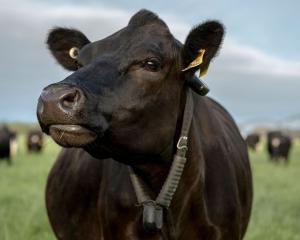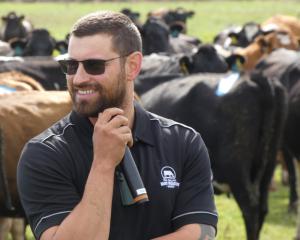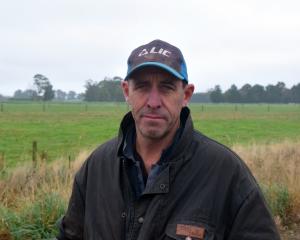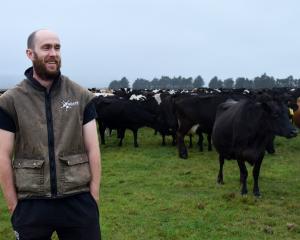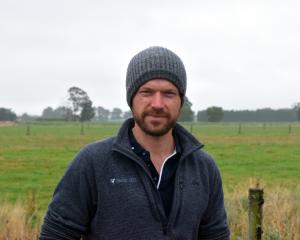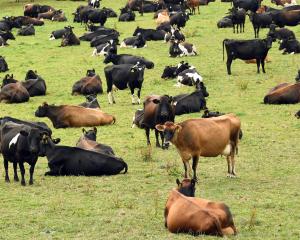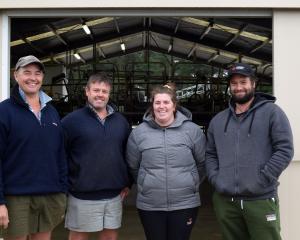
This week, Merlyn Hay was presented with the outstanding contribution to the primary industries award at the inaugural Primary Industries Summit gala dinner in Wellington.
The nominator for the award said Dr Hay had arguably saved the primary sector ''millions of dollars'' and potentially enabled New Zealand to achieve something no other country had - to rid itself of the disease.
Dr Hay, who has been practising veterinary science for 16 years, predominantly in dairy practice, moved back to Oamaru - where she grew up - in 2016.
Working for Vetlife Oamaru, she took over three months later as key veterinarian for Van Leeuwen Dairy Group.
After calls to VLDG animals, she thought she was dealing with something she had not encountered before.
M. bovis had not been in New Zealand and she thought such an outbreak was not very likely.
After seeking advice, she rang the Ministry for Primary Industries' exotic disease hotline, saying she believed she had a case of the bacterial cattle disease.
While told it was unlikely, the response was to get testing and sampling under way immediately.
The disease was confirmed as being in the country on July 22, 2017, triggering New Zealand's largest and most expensive biosecurity response.
Months later it was revealed Southland was believed to be where the disease first took hold.
Dr Hay's nominator said the fact M. bovis had previously not been found in New Zealand and was not among the high-profile diseases, such as foot and mouth disease, that vets were expected to keep an eye out for made her work ''even more remarkable''.
''While it was later discovered that Mycoplasma bovis had entered New Zealand as much as 18 months earlier, there is no doubt that Dr Hay's detection ... has meant that we have a good chance of eradicating the disease.
''If Dr Hay had not been so tenacious and vigilant and it had been months or years later before M. bovis was first detected, it is highly likely we would just have had to live with the disease as farmers in other countries do.''
Last year, Dr Hay was recognised for her contribution to biosecurity excellence at the New Zealand Biosecurity Awards.
Meanwhile, Beef + Lamb New Zealand is to proceed with a new biosecurity levy for cattle following consultation with farmers.
Fifty-nine percent of farmers who provided feedback supported B+LNZ's proposals which included raising the maximum rate for cattle under the new levy from 45c/head to $2/head, with an initial levy rate of $1.80/head for beef cattle, and allowing different rates to be set for different stock classes, so that dairy cattle could be exempt from a ''beef cattle'' levy for the M. bovis response.
B+LNZ sought farmers' views on lifting the cap on the biosecurity levy so the beef sector could meet its 6% ($17.4 million) share of the costs of the response.
That was an increase on the maximum levy rate approved by farmers when consulted on the Government Industry Agreement (GIA) proposal in 2017.
''Farmers have told us they recognise the importance of the M. bovis response and the need for the beef cattle industry to actively play its part in helping to eradicate the disease.
''We also understand the concerns of farmers around the effectiveness of the response and that the announcement about a backlog of investigations and testing has undermined some farmers' confidence,'' B+LNZ chairman Andrew Morrison said.
B+LNZ needed to ''have a seat at the table'' to ensure beef farmers' views were heard. It was working hard with its response partners, MPI and DairyNZ, to resolve those issues and strengthen the programme so there was the best possible chance to eradicate the disease.
However, the help of all farmers and industry was needed to be successful, he said.
Minister of Agriculture Damien O'Connor would assess B+LNZ's application to introduce the levy.
If he approved it, he would then recommend the introduction of a levy order. Due to the time involved in this process, B+LNZ expected it would not be in place until the end of the year.
Also at the gala dinner, Beef + Lamb New Zealand won the team award for its Taste Pure Nature project, Greg Campbell, from Ravensdown, received the chief executive award, Agricom won the innovation and collaboration award for its Green Pastures project, and Lincoln University won the science and research award for its Cleartech project.



